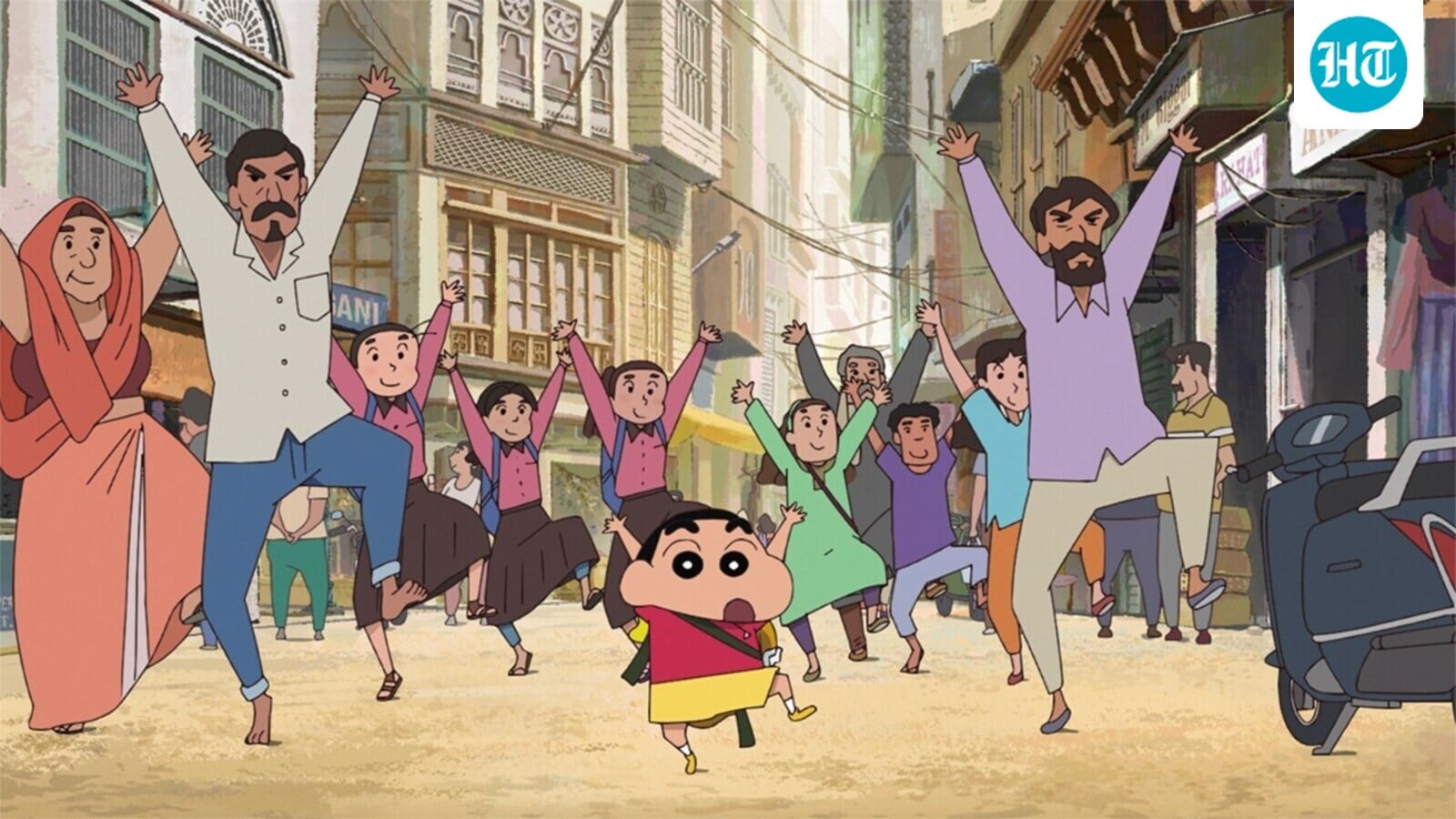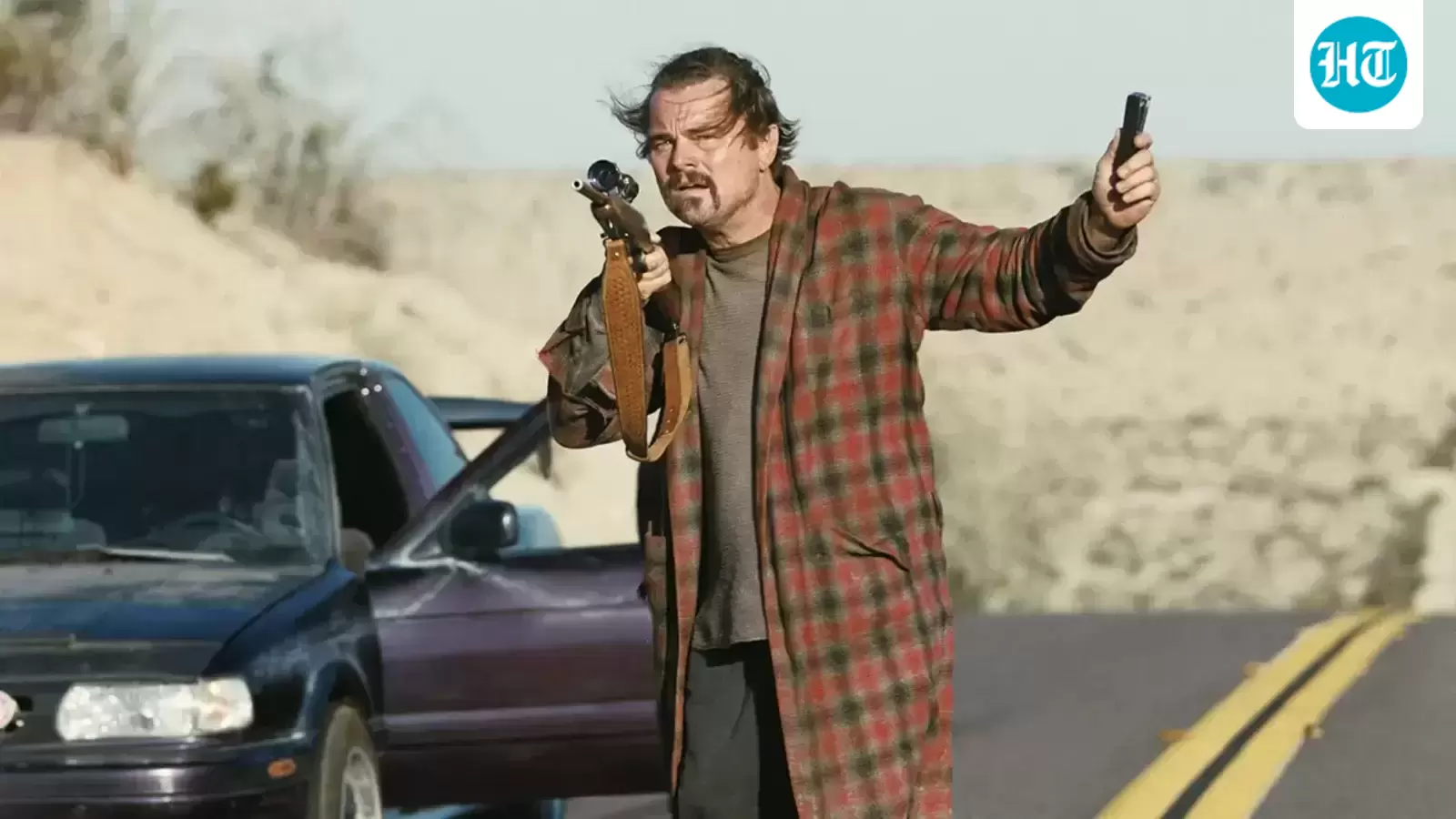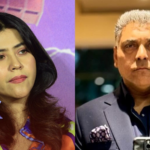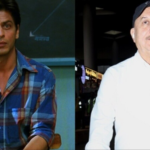Director: Paul Thomas Anderson
Starring: Leonardo DiCaprio, Sean Penn, Benicio del Toro, Regina Hall, Teyana Taylor and Chase Infiniti
Rating:★★★★
American filmmaker Paul Thomas Anderson’s One Battle After Another arrives after nearly two decades of anticipation, a film that has been quietly gestating in the mind of one of Hollywood’s most meticulous auteurs. It also finally unites Paul with Leonardo DiCaprio, an actor who came agonizingly close to starring in Boogie Nights (1997) decades ago, while Sean Penn joins as a chillingly grotesque antagonist. Adapted loosely from Thomas Pynchon’s Vineland, the film translates a countercultural, politically charged novel into a sprawling, high-octane action drama with a deeply human core.

It begins with a violent eruption—an armed assault on a detention facility along the Mexican border led by the French 75, a radical activist cell. Among them is Bob Ferguson (Leonardo DiCaprio), a weary ex-revolutionary who has slipped into obscurity after the movement fractured. His former comrade and lover Perfidia Beverly Hills (Teyana Taylor) is the firebrand behind the chaos, while the group’s military adversary is Colonel Steven Lockjaw (Sean Penn), a grotesque embodiment of reactionary power. As the revolution disintegrates, Bob is left raising his teenage daughter Willa (Chase Infiniti). Their fragile relationship becomes the heart of the story, even as old ghosts return. Lockjaw remains dangerously obsessed with Perfidia, and when the forces of repression close in again, Bob and Willa are forced back into a world of kidnappings, car chases, and betrayals. With help from a martial-arts mentor (Benicio del Toro), Willa begins to assert her independence, while Bob wrestles with his own crumbling ideals and substance-addled paranoia. At once political parable and family drama, the film unfolds across deserts, safe houses, and suburban homes—battlefields that are both external and internal.
The good
Paul thrives in tonal collisions, and here he manages to fuse pulp action with philosophical reflection. The desert car chases are filmed with a nightmarish clarity, recalling films of Alejandro Jodorowsky in their hallucinatory intensity. Yet amid the chaos, the film never loses sight of its core: the father-daughter bond. Leonardo delivers a performance of raw panic and bruised devotion, often disheveled in a dressing gown but radiating a desperate love for his child. Yes, he will be a big name in the upcoming awards season.
Chase Infiniti, in her first film role, matches him note for note, injecting sharp wit and defiance that prevents the dynamic from becoming sentimental. Sean Penn, meanwhile, makes Col. Lockjaw a grotesque yet magnetic antagonist, his every twitch and leer amplifying the unease. And Teyana Taylor’s Perfidia is a force of nature—both idealistic and destructive, blazing through the film like a Molotov cocktail.
Technically, the film is exhilarating, too. Paul’s long-time collaborator Jonny Greenwood provides a jingling-jangling, nerve-tightening score that amplifies the manic energy. The film’s mix of satire, absurdity, and genuine political anger keeps it unpredictable and compulsively watchable.
The bad
Yet, for all its ambition, One Battle After Another occasionally threatens to collapse under its own weight. The sheer density of ideas—immigration, white supremacy, surveillance, family dynamics—sometimes pulls the narrative in too many directions. Paul’s signature reliance on spectacular climaxes will divide viewers once more; the over-the-top finale, equal parts surreal and chaotic, may feel excessive to those who prefer his subtler grace notes.
The tonal shifts can also be jarring. Scenes of brutal violence segue into farcical comedy, which may leave some viewers unsure of how seriously to take the politics. And at nearly three hours, the film’s relentlessness risks exhausting its audience, even as it barrels forward without pause.
The verdict
One Battle After Another is not a film of easy answers or tidy resolutions. It is an anarchic, deeply conflicted work that mirrors the fractured state of the world it depicts. At its best, it showcases Paul’s gift for weaving human vulnerability into grand spectacle, crafting a film that is as funny and furious as it is heartbreaking. Leo finally finds his way into Paul’s world, and the result is one of his most vulnerable performances in years. Penn, Taylor, and newcomer Chase Infiniti round out a cast that feels equally unhinged and alive.
Yes, it is messy. Yes, it is excessive. But its very excess is the point—a reflection of battles both political and personal that never seem to end. Paul has made a film that is both a feverish action epic and a fragile family drama, reminding us that even in the chaos, the fight for love, safety, and meaning never really stops.












